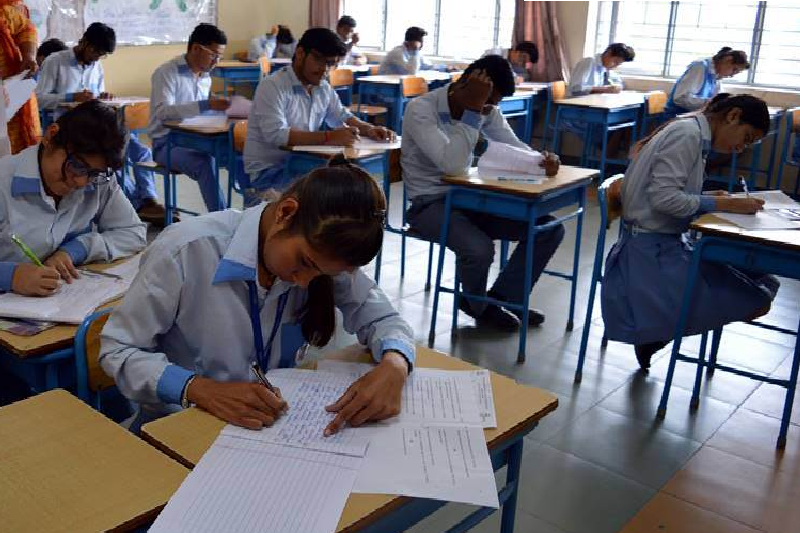
Tamil Nadu Charts Its Own Path: State Unveils New Education Policy, Scraps Class 11 Board Exams
Tamil Nadu has taken a decisive step in shaping its educational future, becoming the first state in India to officially announce its State Education Policy (SEP) 2025—a homegrown alternative to the Central government’s National Education Policy (NEP).
Chief Minister M.K. Stalin formally unveiled the policy at a Friday ceremony at the Anna Centenary Library in Chennai. The announcement was accompanied by a clear statement of intent: the new policy will protect Tamil Nadu’s identity, uphold the state’s long-standing bilingual policy, and focus on creating a future-ready, progressive generation of learners.
Why Tamil Nadu Chose Its Education Path
The Tamil Nadu government has been a vocal critic of the NEP. CM Stalin repeatedly calls it a policy that undermines social justice and seeks to impose Hindi on non-Hindi-speaking states. By releasing its policy, the state aims to craft an educational framework that reflects its socio-cultural values, linguistic heritage, and developmental priorities.
In his speech, Stalin stressed the importance of aligning education with the state's progressive ideals. “Tamil Nadu has a unique character in everything, including education. Our vision is to create students who think, question, and innovate, rather than simply memorise lessons,” he said.
No More Public Exams for Class 11
One of the landmark announcements in the SEP 2025 is the decision to eliminate public examinations for Class 11. This move aims to ease academic pressure on students and shift the focus towards holistic learning. The state believes that scrapping the Class 11 board exams will allow students to engage in deeper, curiosity-driven learning without the stress of another high-stakes assessment between Class 10 and Class 12.
The CM assured that while Class 11 exams will now be school-based, academic standards will be maintained to prepare students effectively for their higher secondary education.
Firm Stand on Bilingual Education
Tamil Nadu’s bilingual policy—Tamil and English—has been one of its most consistent educational principles, and SEP 2025 reaffirms this stand. “Mother tongue Tamil is our identity and our pride. The bilingual policy of Tamil and English will remain non-negotiable,” said Stalin, underscoring the state's resistance to mandatory Hindi imposition.
The policy also includes measures to strengthen Tamil language learning while ensuring English proficiency for global competitiveness.
Shaping Future-Ready Students
SEP 2025 moves away from rote learning and emphasizes fostering critical thinking, creativity, and technological skills among students. The vision is to produce graduates who are:
- Technologically literate
- Creative and innovative
- Physically active and health-conscious
- Equipped for future employment and life challenges
In this context, physical education and extracurricular activities will carry more weight in the curriculum.
Stalin said, “We want to give students the energy and skills needed for life beyond school—students who can adapt, lead, and succeed in a fast-changing world.”
Recognising Student Achievements
The policy launch event also celebrated academic excellence. CM Stalin distributed certificates of appreciation and laptops to state government school students who had secured admission to reputed institutions of higher education.
Deputy Chief Minister Udhayanidhi Stalin, School Education Minister Anbil Mahesh Poyyamozhi, Chief Secretary N. Muruganandam, and several other ministers and senior officials attended the event.
The Process Behind SEP 2025
The Tamil Nadu State Education Policy was shaped by recommendations from a 14-member expert panel headed by Justice (Retd.) D. Murugesan, former Chief Justice of the Delhi High Court. The committee studied global best practices, examined Tamil Nadu’s students' unique needs, and consulted stakeholders, including educators, parents, and policymakers.
By building on this consultative process, the government hopes SEP 2025 will serve as a blueprint for inclusive and progressive education in the state.
Positioning SEP as an Alternative to NEP
While the NEP focuses on a national framework, SEP 2025 is tailored to Tamil Nadu’s cultural, linguistic, and socio-economic context. The state government has positioned the policy as a more equitable and context-sensitive alternative—one that resists centralised imposition and gives the state autonomy to define its own educational trajectory.
Critics of the NEP in Tamil Nadu have long argued that the central policy’s three-language formula is a veiled attempt to impose Hindi. SEP 2025 reaffirms the two-language policy as a matter of identity and self-determination.
Looking Ahead
With SEP 2025, Tamil Nadu becomes a pioneer in creating a state-level educational roadmap that diverges from the Centre’s vision. The policy seeks to balance cultural preservation with modern skills, local priorities with global readiness, and academic excellence with mental well-being.
In Stalin’s words, “This is not just an education policy—it’s an investment in the future of Tamil Nadu.”
The rollout of SEP 2025 will begin in phases. The Education Department is expected to release detailed guidelines for schools in the coming months. The government will monitor the implementation closely to ensure the policy’s principles translate into tangible improvements in classrooms across the state.
Tamil Nadu’s SEP 2025 represents a symbolic and practical assertion of the state’s right to chart its educational course. The state is betting on a more student-friendly, future-focused system by eliminating Class 11 board exams, doubling down on bilingual education, and prioritising creativity and technology. Whether other states will follow this example remains to be seen, but one thing is sure—Tamil Nadu has once again set a precedent in educational reform.



